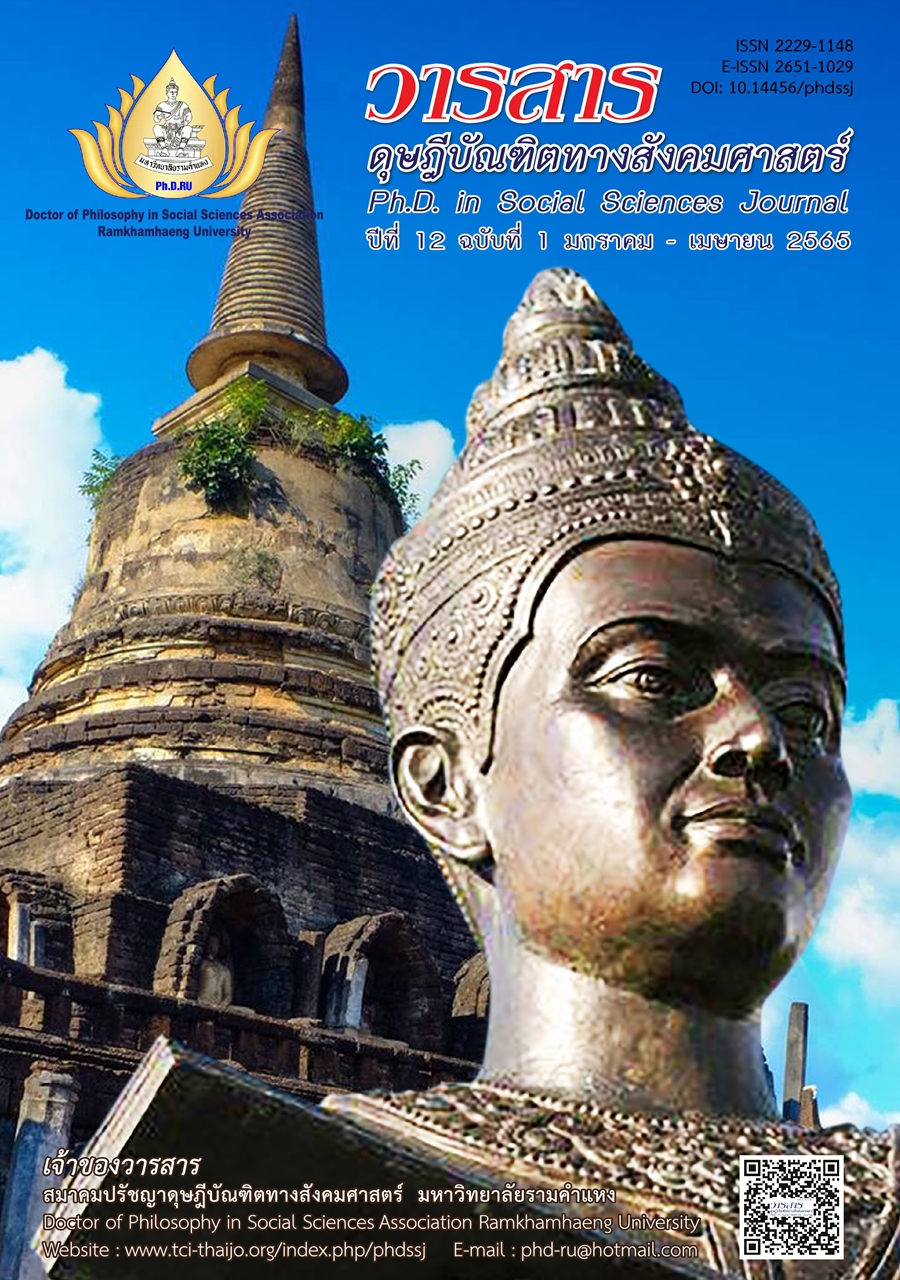Management of Environmental Friendly Hotel by the Reflection from Local Community in Southern Thailand
Main Article Content
Abstract
This research objective was to study management of environmental friendly hotel in southern Thailand. This qualitative research was considerate as the case study selective by using of purposeful sampling method, which was The Paradise Koh Yao hotel were awarded by certified green standard as environmental friendly hotel and FTO organization under Travel-Ife sustainable project. This hotel will be the representative among another qualified hotels where was located in the South-western of Thailand. The research instruments used in data collection stage was focus-group method. The data was collected from the representative of hotel and local communities; those were Family, local community, Local school, Religion & Cultural organization, Sub-district Administration Organization, and Sub-district hospital. The qualitative data were content analyzed.
Findings showed that management of environmental friendly hotel by the reflection from local community in southern Thailand in order to be jointed developed into growth and prosperous sustainability were Family local community, which composed of (1) to increase of budget support for local activities (2) to educate of hotel specialize knowledge for local people (3) to increase of hotel environmental staff’s manpower and (4) to make system of hotel reward nights point enable exchange with local homestay. Local school, which composed of (1) to consider education funds subsidize to students who could produce of environmental friendly invention and (2) to promote and keep continue of environmental friendly project’s activities with local school. Religion & Cultural organization, which composed of (1) to dispatch staff or promoting to hotel’s guest constantly participate activities with local religion organization and (2) To subsidize budget for local religion and culture construction in good condition.
Article Details

This work is licensed under a Creative Commons Attribution-NonCommercial-NoDerivatives 4.0 International License.
Academic articles, research articles, and book reviews in the Ph.D. in Social Sciences Journal are author’s opinions, and not the publisher’s, and is not the responsibility of the Ph.D. in Social Sciences Journal Philosophy Association, Ramkhamhaeng University. (In the case that research is done on human, the researcher has to be trained in Ethics for Doing Research on Human Training and has to produce the evidence of the training).
References
Barnard, C. I. (1938). The functions of the executive. Harvard University Press.
Boonma, S. (2009). Strengthening community participation at Baan Ko Phithak, Bang Namchuet subdistrict, Lang Suan district, Chumphon province. Silpakorn University. [In Thai]
Chaiyasert, S. (2006). The development model of public participation in audit committee of the Metropolitan Police Administration. Suan Dusit University. [In Thai]
Chantavanich, S. (1997). Data analysis in qualitative research. Chulalongkorn University. [In Thai]
Chuangweruwan, N. (2013). Participation in natural resources and environment cconservation of people in the area under responsibility of Sato Sub-District Administrative Organization, Khao Saming District, Trat Province. Master’s Thesis of Public Admistration, Burapha University]. [In Thai]
Cohen, J. M., & Uphoff, N. T. (1980). Participation’s place in rural development: Seeking clarity through specificity. World Development, 8(3), 213-235.
Department of Environmental Quality Promotion. (2016). Green hotel. Retrieved from https://datacenter.deqp.go.th/service-portal/g-green/greenhotel/derivation [In Thai]
Energy Saving. (2013). Green product trends the world: The answer to sustainable energy. Energy Saving Journal Online, 52(3), 30-37. [In Thai]
Erdogan, N., & Baris, E. (2007). Environmental protection programs and conservation practices of hotels in Ankara, Turkey. Tourism Management, 28(2), 604-614.
Freeman, R. E. (1984). Strategic management: A stakeholder approach. Pitman.
Green Leaf Foundation. (2016). Standard for beautiful World. Retrieved from http://www.greenleafthai.org/about [In Thai]
Kasemsawat, S. (2011). Participation in environmental management focusing on water and garbage of Amphawa municipality, Amphawa district, Samutsongkram province. Suan Sunandha Rajabhat University. [In Thai]
Kasemsuk, C. (2011). Communication and changes in society. Chulalongkorn University Press. [In Thai]
National Statistical Offi ce. (2018). The 2018 accommodation survey. Retrieved from https://shorturl.asia/JkrWv [In Thai]
Post, J. E., Preston, L. E., & Sachs, S. (2002). Managing the extended enterprise: The new stakeholder view. California Management Review, 45(1), 6-28.
Robinot, E., & Giannelloni, J. L. (2010). Do hotels’ “green” attributes contribute to customer satisfaction?. Journal of Services Marketing, 24(2), 157-169.
Sudakhum, Y. (2012). People’s participation in environmental management: A case study of Ban Pa Sak Ngam, Luang Nuea sub-district, Doi Saket district, Chiang Mai province. Master’s Thesis of Arts, Chiang Mai University]. [In Thai]
Thailand Environment Institute. (2014). Manual of people participation on Environmental Impact Assessment (EIA). Retrieved from http://www.tei.or.th/tai/2014-Book-EIA.pdf [In Thai]
Wandaw, W. (2009). Environmental management of hotels in Krabi. Master’s Thesis of Science, National Institute of Development Administration. [In Thai]
World Tourism Organization. (1992). Guidelines: development of national parks and protected areas for tourism. Author.
Wutthimaythee, Y. (1983). Principles of community development and rural development. Thai Courtesy. [In Thai]


